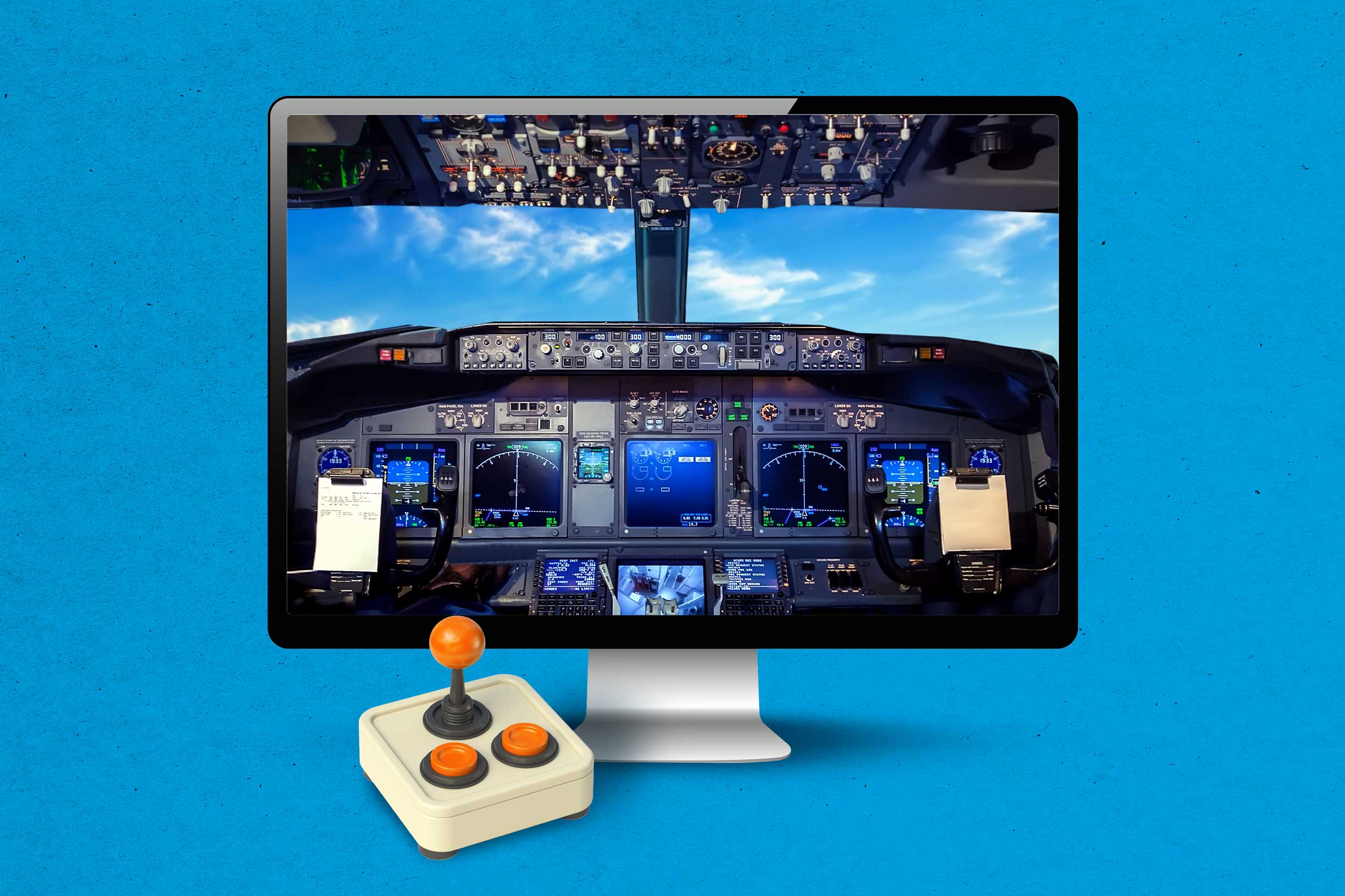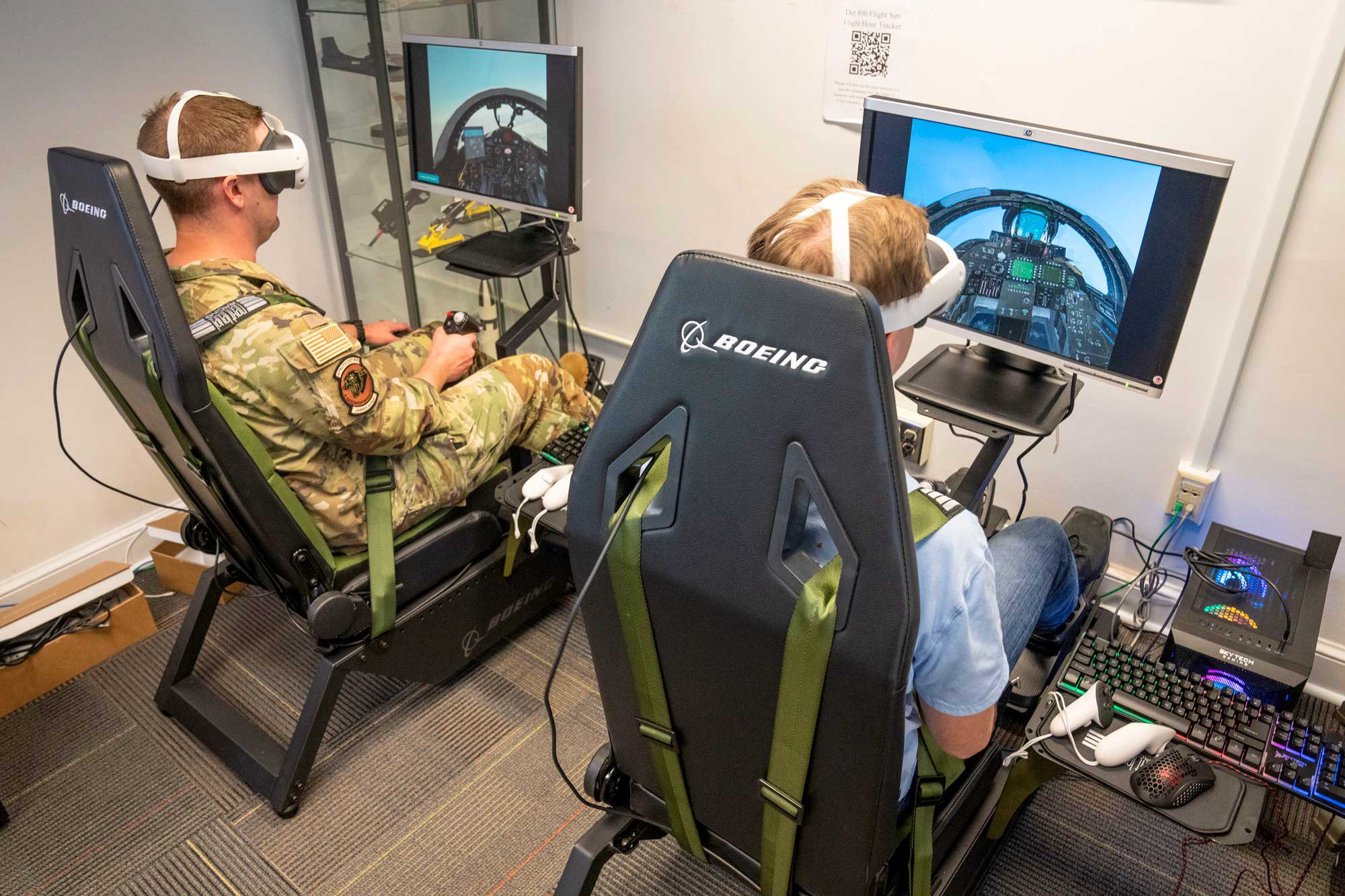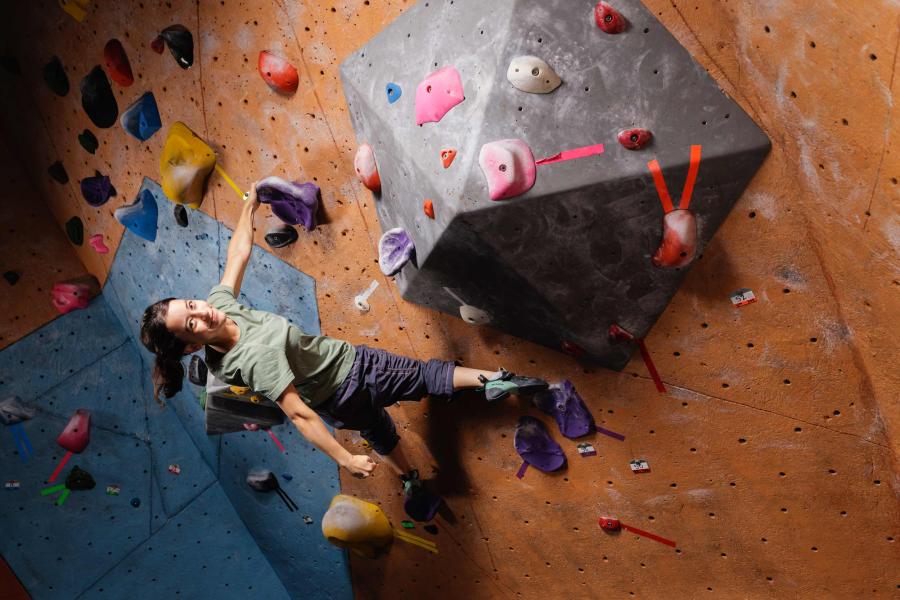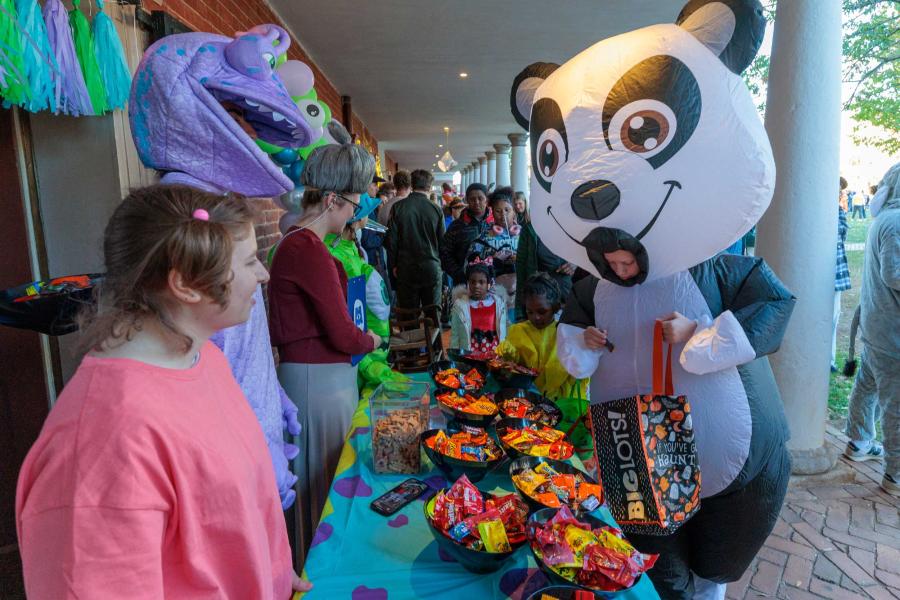“Our Board of Trustees reviews each proposal and makes funding decisions. They liked the student impact and involvement of this project,” Seese said.
“Having support through funding from the Jefferson Trust affords UVA cadets and prospective UVA students the opportunity to develop procedural knowledge and potential interest in serving as a pilot in the world’s greatest air force,” Col. Jason B. Bell, commander of ROTC Detachment 890, said. “These simulators are easy to operate and provide a photo-realistic replica of the same training aircraft used by the United States Air Force and Navy. We fully expect this program to enhance the training opportunities for our students as they prepare to go to pilot training and bolster the number of pilots graduating from the University of Virginia.”
Gupton said the Air Force ROTC is currently using X-Plane 12 software with virtual reality headsets to offer unofficial “flight” sessions on Mondays and Tuesdays. UVA’s Air Force ROTC detachment is rated among the top 10% in the country, including in producing alumni who go on to become pilots.
“We do expect interest to increase with the availability of these simulators,” Gupton said. “We expect the training received by prospective pilots will enhance their application for pilot training as third-years.”
The ROTC also is accepting a used flight simulator from the Department of Mechanical and Aerospace Engineering.
“We’ve had a flight simulator in our building for a long time,” department chair Richard Kent said. “We use it in a number of ways. One is in some of our coursework, and we also have students who are working on private pilot licenses. They can actually use that for hours toward their pilot’s license.”
Kent said that the engineering simulator has the student sit in a virtual cockpit.
“You have screens all around you, controls in front of you and it’s like sitting in a plane,” Kent said. “… You can sit two or three people inside there and feel as if you were flying around.”
Kent said the department was replacing the simulator with a newer version.
“It’s actually pretty cool and it works well,” Kent said of the old simulator.
“We intend to use part of the grant funding to address any mechanical issues with the simulator,” Gupton said.
Gupton said the ROTC is looking into coordinating with the aerospace engineering department on a one-credit flying course using the simulator.






